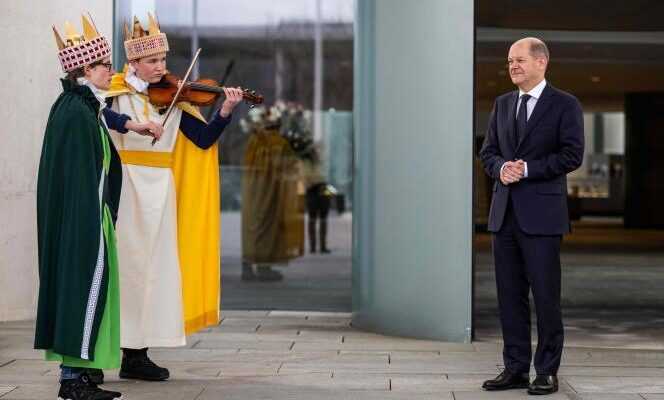Between Russia and the United States, there is the European Union (EU). And at the heart of it is Germany. Logically, Berlin should therefore occupy a central place in the intense diplomatic sequence of the beginning of the year, where what is at stake, through the fate of Ukraine, is nothing less than the security of the continent. European.
For Germany to play this role, however, it would need to have a clear policy vis-à-vis Russia. However, it is not the case. Since his election on December 8, 2021, the new chancellor, Olaf Scholz, has been very silent on the issue. According to the daily Bild, however, this discretion would be misleading. In an article on Monday, January 3, the Tory tabloid claims Mr Scholz is looking for a ” new start “ in German-Russian relations and that he intends to take the matter directly in hand, relegating to an extra role his foreign minister, the ecologist Annalena Baerbock, supporter of a policy of firmness vis-à-vis the Kremlin . According to Bild, a first bilateral meeting between the new head of the German government and the Russian president, Vladimir Poutin, would be scheduled by the end of January.
If the Chancellery has not confirmed this information, it has nonetheless been widely commented on in the German press, which wonders what this call for a ” new start “ in relations between Berlin and Moscow when there is no consensus within the “traffic light” coalition led by Mr. Scholz.
“I find it hard to see what form this new start could take. For the moment, there is nothing substantial, nothing concrete. What is true for Russia is also true for Germany’s foreign policy in general, which is not very strategic, not very conceptual and essentially reactive ”, says Stefan Meister, head of the “international order and democracy” program at DGAP, a Berlin think tank specializing in the study of international relations. “On the other hand, Scholz has a very minimalist way of communicating, so it’s hard to know what’s really on his mind”, he adds.
“New Ostpolitik”
For Mr. Scholz, this idea of a “reset” in German-Russian relations is not new. “We need a new Ostpolitik”, he had already declared to Deutsche Welle, in August 2021, in reference to the policy of the former Social Democratic Chancellor (SPD) Willy Brandt (1969-1974), aimed at normalizing relations with the USSR. In this interview published a month before the legislative elections of September 26, 2021, the SPD candidate for the chancellery had, however, hardly advanced on the content of this “New Ostpolitik”, content to say that Russia had to accept that “It is the force of law that applies and not the law of the strongest”. “A typical sentence of a German social democrat: when he wants to please his electorate, he speaks to him of a new Ostpolitik”, comments Stefan Meister.
You have 47.95% of this article left to read. The rest is for subscribers only.
